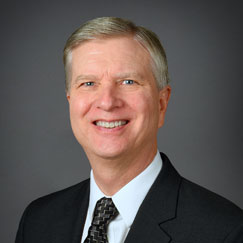What Is a Rotator Cuff Tear?
The rotator cuff is a group of tendons and muscles that connect your shoulder blade to your upper arm bone. This group of muscles and tendons work together to allow you to raise your arm and move it around in different directions. A rotator cuff tear occurs when one or more of these tendons or muscles tear or become damaged. This can result in weakness, pain, and difficulty moving the shoulder joint.
Shoulder Pain
One of the main symptoms of a rotator cuff tear is shoulder pain. Depending on the severity of the tear, you may experience pain when moving your arm, lifting objects, or even when you’re resting. This pain can be dull and achy or sharp and intense. In some cases, the pain may radiate down the arm, making it difficult to grip or use your hand.
How Can POSMC Help?
At POSMC, we specialize in shoulder injuries and have a team of experts who can help you navigate the diagnosis and treatment of rotator cuff tears. We use the most advanced diagnostic tools to accurately assess the severity of your injury and develop a personalized treatment plan based on your unique needs.
Treatment Options
Treatment options for rotator cuff tears depend on the severity of the injury. In some cases, physical therapy may be enough to help strengthen the muscles and tendons and alleviate the pain. In more severe cases, surgery may be necessary to repair the damage. At POSMC, we use minimally invasive arthroscopic techniques to repair rotator cuff tears, which leads to faster recovery times and fewer complications.
Preventing Future Injuries
After treatment, it’s essential to take steps to prevent future injuries, such as working with a physical therapist to develop an exercise routine that strengthens the muscles and tendons in your shoulder. At POSMC, we’re committed to helping you regain your mobility and avoid future injuries.
If you’re experiencing shoulder pain or have difficulty raising your arm, you may have a rotator cuff tear. Thankfully, there are treatment options available that can help alleviate your pain and restore your mobility. At POSMC, we’re here to help you navigate the diagnosis and treatment process and provide you with the care and support you need to get back to doing the things you love. Contact us today to schedule an appointment and take the first step towards recovery.
Dr. Randal L. Troop
Shoulder, Knee and Sports Medicine
View Bio
Dr. Michael S. Howard
Shoulder, Elbow and Upper extremity
View Bio
Dr. John E. McGarry
General Orthopedics, Shoulder, Knee and Sports Medicine
View Bio
Dr. Earl R. Lund
Shoulder, Elbow, Hand and Wrist
View Bio




